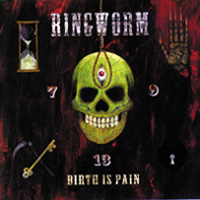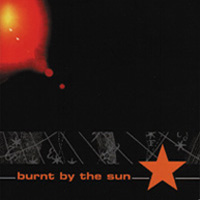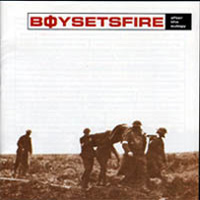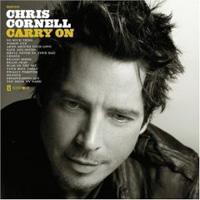 Chris Cornell
Chris Cornell
Carry On (Suretone/Interscope)
An Interview with Chris Cornell
By Tim Den
photos by Bruce Bettis
I’m sure you’re sick of this question by now, but I just gotta ask: Can you detail the break up of Audioslave a bit?
When we finished writing Revelations, we left the future open. I started working on Carry On while the other guys got Rage Against The Machine back together. We didn’t decide on anything, but at the same time, it was apparent that the songwriting – actually, the entire process of Audioslave’s work method – had been taken as far as it could go. If we worked on a fourth record, it would’ve required us to go beyond what we’d been doing up until now, which was get in a room, jam on riffs and ideas, and be spontaneous. I loved the working process of Audioslave. We wrote a lot of songs, and I myself had never been so prolific. But at the same time, I missed making music that was more “involved,” meaning more orchestrated and perhaps elaborate. And, of course, there were certain business issues that we never agreed upon that were there from the beginning, mostly because we worked so fast and so well together that it was easy to just ignore the business aspect of it. But you can’t ignore problems forever. They bite you in the ass in the end.
 Most importantly, though, my heart was telling me that I shouldn’t be in a band for a while. I’ve gone through similar phases on and off my whole life. When I quit drinking and doing drugs, I kind of had an anxiety attack. I felt like I’d lost time and should be making up for it. I’m in my early 40s, and I still feel like there’s so much more music to make and experiment with before I die. Which I hope is a long time from now. (laughs) I have so much to say, and there’s so much more I want from music – more access to touring, writing, keeping my own pace – that I just realized that I had to do the solo thing. It’s where my heart is, and I’m really enjoying it. I couldn’t afford to let someone else’s opinion or vacation time get in the way of it.
Most importantly, though, my heart was telling me that I shouldn’t be in a band for a while. I’ve gone through similar phases on and off my whole life. When I quit drinking and doing drugs, I kind of had an anxiety attack. I felt like I’d lost time and should be making up for it. I’m in my early 40s, and I still feel like there’s so much more music to make and experiment with before I die. Which I hope is a long time from now. (laughs) I have so much to say, and there’s so much more I want from music – more access to touring, writing, keeping my own pace – that I just realized that I had to do the solo thing. It’s where my heart is, and I’m really enjoying it. I couldn’t afford to let someone else’s opinion or vacation time get in the way of it.
I’m not saying any of this in a negative way toward the guys in Audioslave. It was extremely easy to be creative in that band. The third (and last) record is actually my favorite. You know, when we came together, a lot of people wanted us to succeed, but also a lot of people wanted to believe that we were a corporate business move. But I always said “let the music speak for itself,” and I feel that it does.
Would you mind pinpointing the time period when you got sober?
I went into rehab right before Audioslave’s first tour. I’ve never toured with Audioslave while under the influence. Getting clean not only made me focus on music, it made me focus on life. I got remarried, had more children; it felt like waking up. In fact, I feel like I’m still doing it right now: I have 15, 20 year-old memories just now slowly coming back to me. It’s actually not too bad for a guy who was in a Seattle band. (laughs) The first time I did drugs, I was 12 years-old. I never went overboard with it, but years and years of build up eventually took its toll.
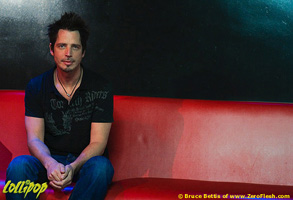 I only ask because I thought maybe you got sober during Euphoria Morning, since it was a solo album full of musical departures and fits your description of doing what you want instead of adhering to others’ opinions…
I only ask because I thought maybe you got sober during Euphoria Morning, since it was a solo album full of musical departures and fits your description of doing what you want instead of adhering to others’ opinions…
Actually, I was at my worst during Euphoria Morning. It was the lowest point. I was doing really badly. It took me six times longer than usual to finish that record. I wasn’t writing under the influence – I’ve never been able to do that – but most of the time it would take me entire days just to get over a hangover or something to be able to work. When I was in the studio for “Preaching the End of the World,” I literally spent more than half a day just waiting for this terrible headache to go away.
Really? And here I was thinking that you were getting started on pursuing the solo thing that you were talking about…
Well, Euphoria Morning was a reaction to having been in Soundgarden for so long. I felt like there were directions that I wasn’t allowed – or that weren’t appropriate – to go in, either because the lyrics were too personal or the other guys didn’t like the music.
 But then you jumped right back into the band format immediately afterward: Why?
But then you jumped right back into the band format immediately afterward: Why?
Kind of because of the same reasons as Temple Of The Dog: I couldn’t turn down such a collaboration. When Tom (Morello, Rage Against The Machine/Audioslave guitarist) called me, it just sounded like a great idea to be in a band with those guys. I had just come out of Soundgarden, where, toward the end, I was perceived as the driving force. I’d written a ton of material for the band, was doing most of the press, was always the first one at the studio and the last one to leave. I was extremely hands-on with Soundgarden. And same thing with Temple Of The Dog: I co-produced it, and it was my first production experience. I helped arrange the songs, melodies, and sometimes even what notes the instruments played. Audioslave, however, allowed me to move away from that. It was the total opposite, where everyone felt like they were an equal part.
And now you’re back on track doing the solo thing, how does Carry On continue what you started with Euphoria Morning?
I definitely feel like Carry On is related to Euphoria Morning. I didn’t tour much behind Euphoria Morning, and now that I’ve returned to it years later, I’m finding it to be a very musical album. There’s a lot out of it that I can still bring back. I don’t remember some of it (laughs), so I’ve had to relearn some of the songs.
Do you think you’ll be playing songs from it on tour?
Perhaps. The band I have now knows about 40 songs (laughs), so there will be no shortage of variation. I feel like, for the first time, Euphoria Morning‘s songs can be authentically duplicated live. For a while, there was just something missing, but not anymore. I definitely think I’m now able to revisit my past and offer a well-rounded encapsulation of everything I’ve done.
(www.suretone.com)

